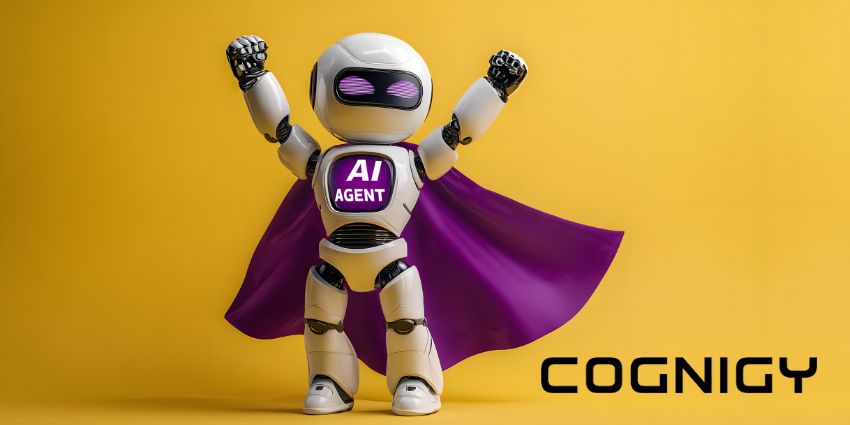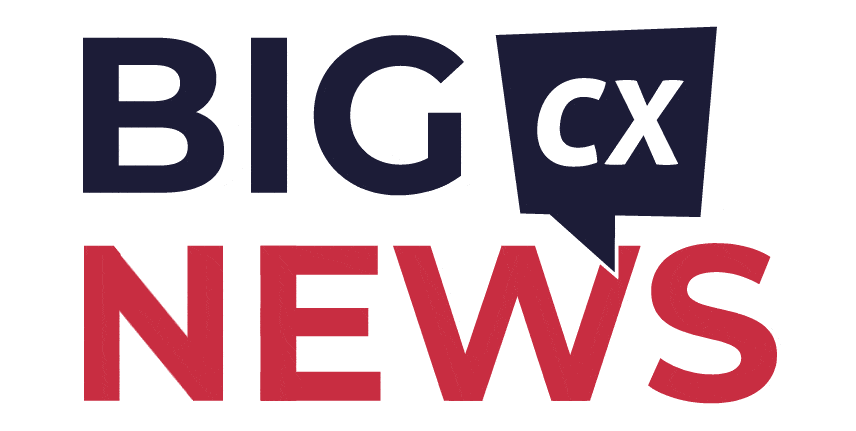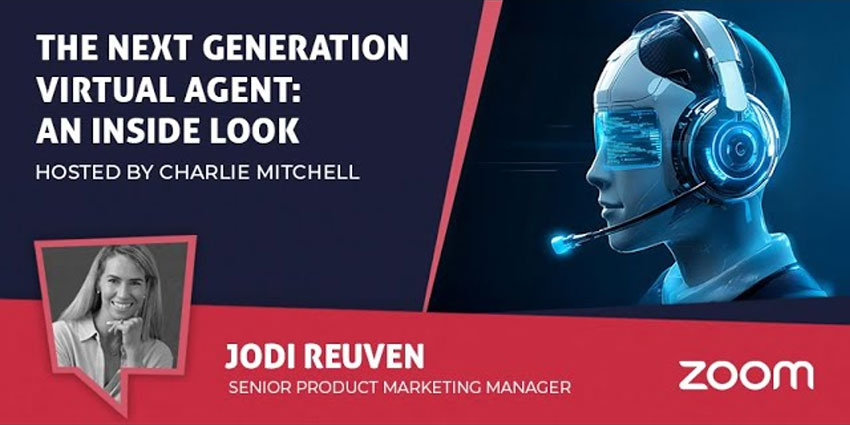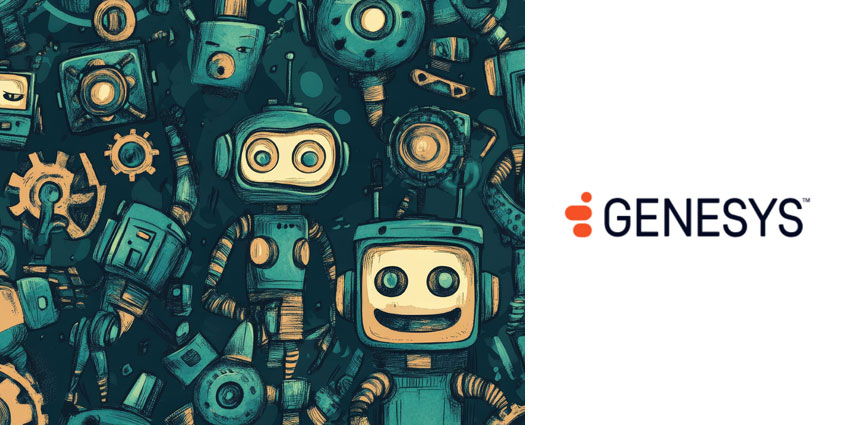Each year, industry researchers like ISG and Opus Research present conversational AI market evaluations that rank providers. This is not one of those assessments.
Instead, this rundown spotlights ten of the most innovative brands differentiating in the conversational AI space.
Prominent industry experts Wayne Butterfield, AI, Automation, & Contact Center Transformation Partner at ISG, and Derek Top, Senior Analyst at Opus Research, helped select the vendors.
In the following video, they weigh up each, spotlighting what will set these vendors apart in 2025.
A written breakdown of their key points is also available below the video.
1. Cognigy
Based out of Europe, Cognigy works with many large enterprises, particularly in the DACH region.
What keeps the vendor relevant heading into 2025 is its big push into agentic AI.
Recently, its CEO and the team made a major announcement relating to this next wave of AI, and Cognigy is making strides with prompt-based AI platforms.
These AI platforms represent a significant leap forward from the older, rules-based dialog design approaches to creating virtual agents.
Before the rise of large language models (LLMs) and ChatGPT, Cognigy already excelled in creating flexible dialog designs. Its approach enables bots to take on more advanced, autonomous tasks.
Lastly, Cognigy has consistently stayed ahead of the game, particularly with persona-building capabilities in bots, something that’s now becoming mainstream.
Summing up, its focus on agentic AI strategies gives Cognigy strong market positioning.
2. OneReach.ai
Continuing the theme of agentic AI, OneReach.ai offers a platform for developing and orchestrating bots and AI solutions.
Central to this is its cognitive architecture, enabling AI agents to autonomously identify the tools and integrations needed to complete tasks. This makes automation more effective, moving beyond simple self-service bots to true orchestration.
OneReach.ai’s “bring your own model” approach is particularly interesting. Unlike vendors with proprietary natural language processing (NLP) models, OneReach.ai integrates with the best available models, whether it’s Watson, Google, or any of the new LLMs.
Essentially, it has built a foundation that can evolve alongside the latest advancements in AI.
3. Kore.ai
Kore.ai has long been a staple in the space, but what keeps it relevant for 2025 is its focus on leveraging LLMs for complex queries.
Most vendors are using LLMs to enhance their customers’ understanding of customer intent, but Kore.ai is going a step further by enabling bots to solve more complex problems.
For instance, it recently launched a Knowledge Graph capability that works in tandem with LLMs to provide intelligent and detailed responses to customer queries.
Meanwhile, Kore.ai has a strong track record with longstanding enterprise clients. This gives it a solid foundation to build on and evolve its platform.
Finally, like Cognigy, Kore.ai also integrates well with many prominent CCaaS platforms, which has helped forge its robust partnerships with large enterprises.
These partnerships allow Kore.ai to deliver conversational AI as an overlay to various widely utilized contact center solutions.
4. Gridspace
Gridspace specializes in voice AI applications and has two core products.
The first is called Sift, which focuses on transcription and conversational analytics. It’s how Gridspace started, and it had success with big-name clients like USAA. Sift helps analyze and understand customer conversations in contact centers.
Its second product, Grace, is its conversational AI platform. Grace is particularly strong in healthcare, travel, and hospitality, with use cases like triage, scheduling, and prescription refills.
For example, Memorial Hermann in Texas is one of their prominent clients. Even before advancements like LLMs, Grace delivered a natural, conversational user experience. Now, with the latest technologies, it has become even more emotive and effective.
Yet, what most stands out is how Gridspace leads with value-driven use cases. It focuses on either saving money or delivering tangible benefits to its clients.
The team, based in LA, is small but highly innovative, with talent from Stanford, SRI, MIT, and similar institutions, which frequently and effectively showcase the technology on YouTube.
On the channel, the team emphasizes how quickly they can create a conversational journey with Grace. They’ve even built proof-of-concept solutions in hours that would take weeks with other vendors. That’s a game-changer.
5. boost.ai
boost.ai stands out for its accessibility. Unlike some vendors with high price points, boost.ai offers enterprise-grade functionality at a more affordable level, which makes it suitable for mid-market and smaller organizations.
That’s big because AI is supposed to save money, but many solutions are prohibitively expensive to implement and maintain. Meanwhile, boost.ai stands out by delivering strong capabilities while being budget-friendly.
It’s also a vendor on the rise, with rapid development in its analytics and AI agent functionality.
6. Sprinklr
While Sprinklr is known for its social media and content marketing platforms, it has expanded into CX management and conversational AI.
Its unified customer experience platform has also proved successful, and the vendor is making strides in applying AI to enhance customer journeys.
Yet, perhaps what’s most exciting is its recent leadership change. Rory Reid, formerly of Vonage, has joined Sprinklr, which could signal a shift in focus towards growth and innovation, particularly with their conversational AI offerings.
Whenever a leader in one area expands into another, especially something as dynamic as conversational AI, it’s worth paying attention.
Moreover, its Digital Twin release in Spring 2024 showed excellent vision. The idea of treating AI like an employee or team member is intriguing, both for customer-facing and internal use cases.
7. Pypestream
What sets Pypestream apart is its focus on digital interactions complemented by conversational AI. Its platform emphasizes engagement through visual elements like clicking, swiping, and videos rather than relying solely on text-based conversations.
The approach is particularly effective for industries like telecom, broadband, or entertainment, where visual comparisons – like choosing a broadband package – is typically more impactful than text explanations. Its proven track record with clients in these industries also helps solidify their value.
Finally, digital-first interaction platforms often provide clear ROI metrics, which makes Pypestream’s platform very compelling.
8. Parloa
Parloa operates in the same realm as OneReach and offers an AI platform studio. Notably, it has tools and structures for creating voice and conversational AI experiences.
Recently, Parloa secured new funding and has maintained strong relationships with larger CX and CCaaS platform vendors.
The vendor also works with Microsoft, and featured in a recent Opus Research report on how enterprises can manage risks like hallucinations, privacy issues, and guardrails when implementing AI technologies. That underlined its focus on trust, security, and compliance.
Parloa also has a comprehensive security platform tied to its voice AI studio, providing detailed automated oversight and quality assurance.
For enterprises concerned about building security in-house, Parloa provides a strong option.
9. Uniphore
Uniphore sits somewhere in between being a CCaaS and a conversational AI vendor.
As such, it does more than just conversational AI, offering features like visual IVRs and analytics. It has also integrated with companies like EE in the UK for agent assist.
Additionally, Uniphore has made moves into areas like customer data platforms (CDPs) and cloud migration, building a foundation for deeper integration and analytics capabilities.
So, while Uniphore may not be the best standalone conversational AI vendor, it provides a comprehensive package that many others don’t.
10. Five9
Five9 is predominantly a CCaaS provider, but it has been building out its conversational AI capabilities since acquiring Inference Solutions in 2020, which focused on voice AI and bots. Since then, it has evolved into something quite impressive.
Most recently came its Genius AI platform and an AI Studio, showcasing tools that make it easier to build conversational AI solutions, leveraging LLMs and generative AI to power both self-service and agent-assist capabilities.
For example, it has demoed use cases where AI takes autonomous actions, like upgrading a customer’s airline ticket.
Five9 has also introduced an AI Blueprint to help enterprises kickstart their AI strategies, whether they’re large organizations or smaller businesses.
Yet, overall, the CCaaS world presents an interesting conundrum: should a business rely on its CCaaS vendor’s capabilities or go with a standalone conversational AI vendor?
If CCaaS vendors like Five9 can get it right, there’s potential for significant vendor consolidation. It’s a space to watch alongside players like NICE, Genesys, and Amazon Connect.
To unpack more top ten provider lists from across the CX stack, sign up for the CX Today Newsletter.







